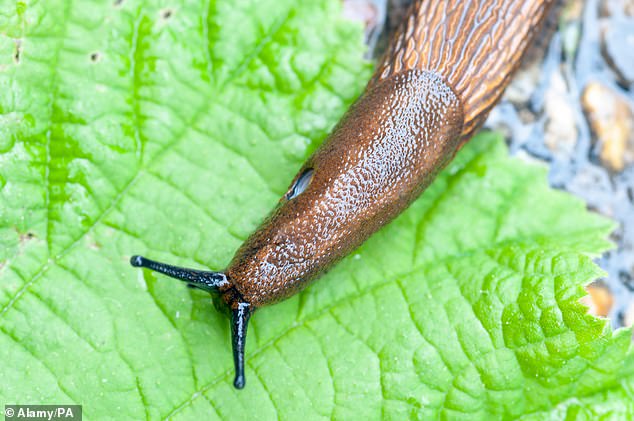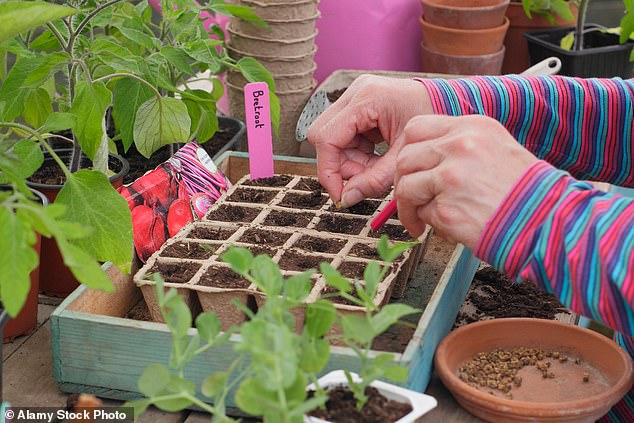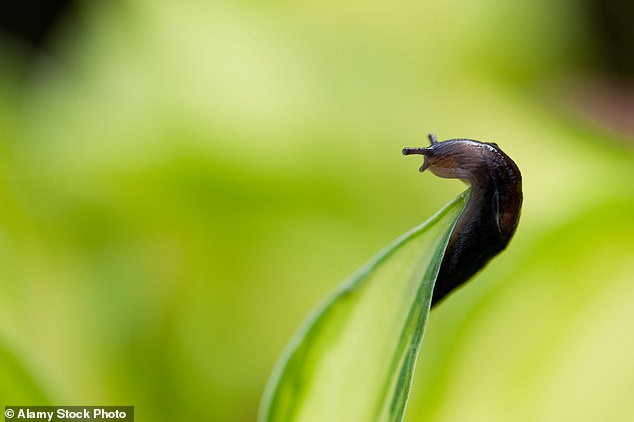Last year thousands of us were left in despair after waking up to discover our prized blooms had been devoured by hordes of slugs.
But there is reason to rejoice… for unfavourable conditions mean the pests will arrive in smaller numbers this year, say experts.
The Royal Horticultural Society (RHS) predicts cold snaps this winter and the recent dry spell will have limited their numbers.
This compares to last year’s wet and mild conditions, which led to slugs being active earlier, increased breeding and more persistent activity due to the absence of any prolonged warm, dry spells forcing them underground.
Indeed, 2024 saw the highest number of calls to the RHS advisory service since records began in the 1970s, with more than one in ten (13 per cent) of all inquiries related to slugs and snails.

Last year thousands of us were left in despair after waking up to discover our prized blooms had been devoured by hordes of slugs (stock image)

The RHS advises that gardeners leave young plants to grow strong indoors before being planted in beds or borders (stock image)

The Royal Horticultural Society (RHS) predicts cold snaps this winter and the recent dry spell will have limited slug population numbers (stock image)
Weather aside, the RHS Gardening Advice Service suggests that years of high slug activity are often followed by reduced activity owing to disease, the threat from predators, and increased competition for food.
While slugs are necessary for a healthy garden ecosystem, the RHS advises that gardeners leave young plants to grow strong indoors, under glass or raised – for example on a bench – before being planted in beds or borders.
Hayley Jones, from the RHS, said: ‘Slugs are here to stay, so learning to think like one is how you can best limit their pesky behaviour.
‘While inviting wildlife into your garden will help keep them in check, you can apply layers of management including tweaking your watering regime, using a dry mulch, or moving slugs to a compost heap’.







